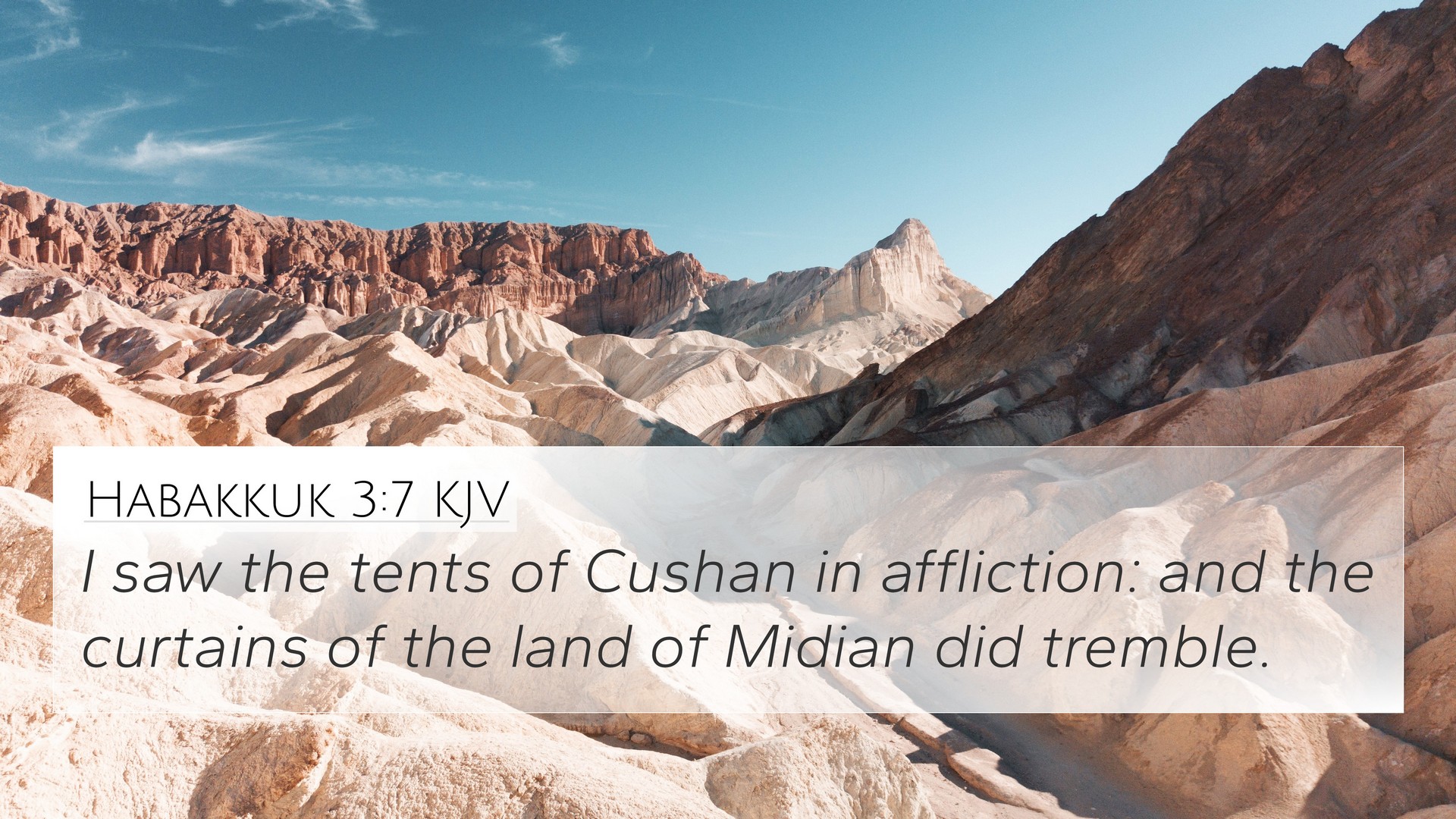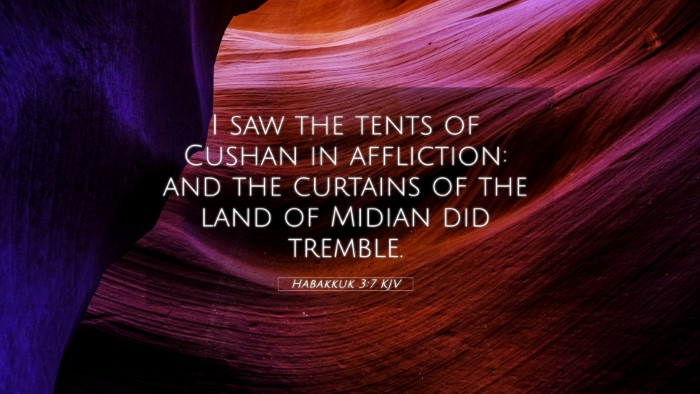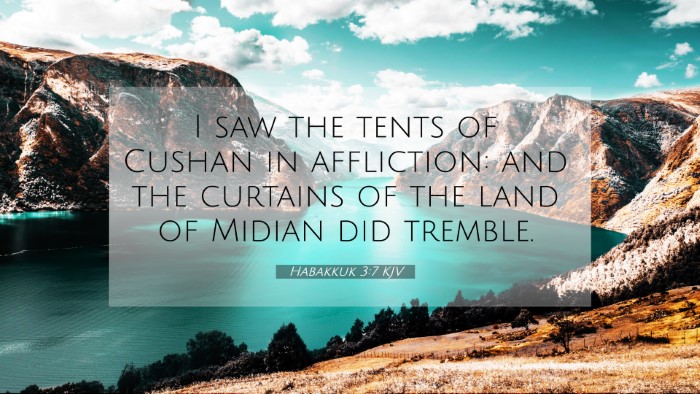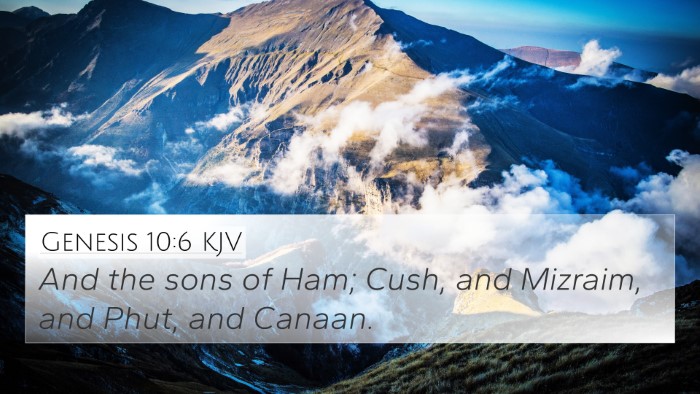Old Testament
Genesis Exodus Leviticus Numbers Deuteronomy Joshua Judges Ruth 1 Samuel 2 Samuel 1 Kings 2 Kings 1 Chronicles 2 Chronicles Ezra Nehemiah Esther Job Psalms Proverbs Ecclesiastes Song of Solomon Isaiah Jeremiah Lamentations Ezekiel Daniel Hosea Joel Amos Obadiah Jonah Micah Nahum Habakkuk Zephaniah Haggai Zechariah MalachiHabakkuk 3:7 Similar Verses
Habakkuk 3:7 Cross References
I saw the tents of Cushan in affliction: and the curtains of the land of Midian did tremble.
Uncover the Rich Themes and Topics of This Bible Verse
Listed below are the Bible themes associated with Habakkuk 3:7. We invite you to explore each theme to gain deeper insights into the Scriptures.
Habakkuk 3:7 Cross Reference Verses
This section features a detailed cross-reference designed to enrich your understanding of the Scriptures. Below, you will find carefully selected verses that echo the themes and teachings related to Habakkuk 3:7 KJV. Click on any image to explore detailed analyses of related Bible verses and uncover deeper theological insights.
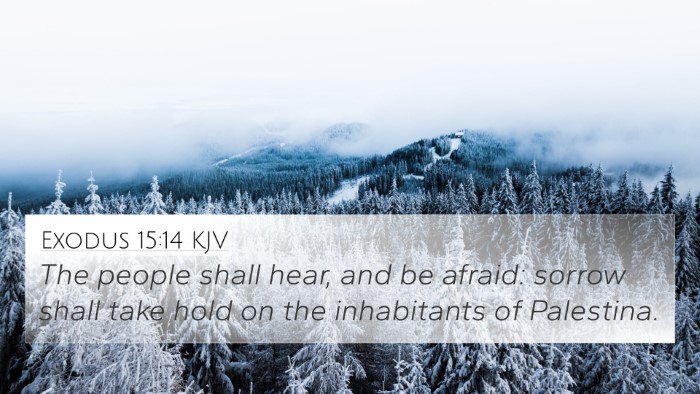
Exodus 15:14 (KJV) »
The people shall hear, and be afraid: sorrow shall take hold on the inhabitants of Palestina.
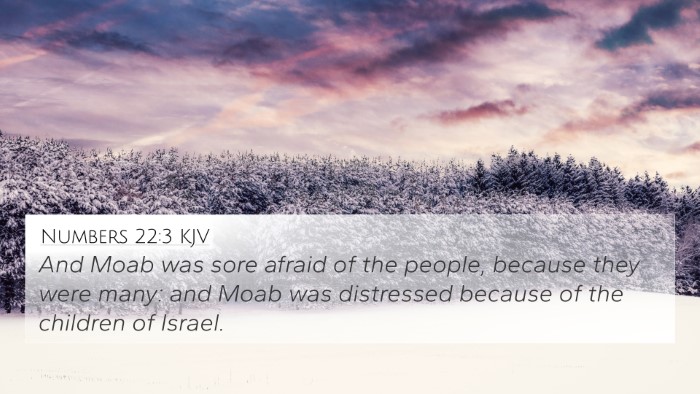
Numbers 22:3 (KJV) »
And Moab was sore afraid of the people, because they were many: and Moab was distressed because of the children of Israel.
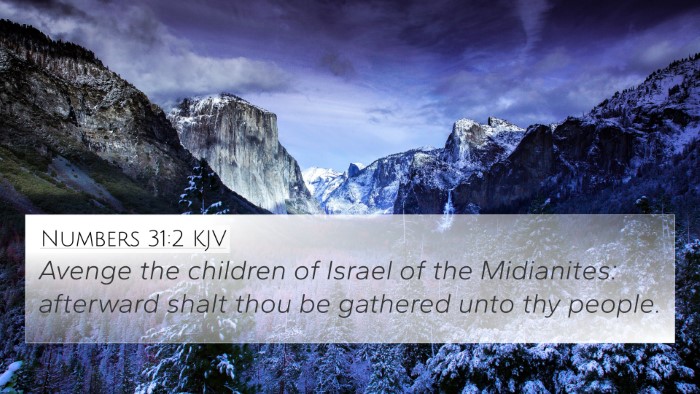
Numbers 31:2 (KJV) »
Avenge the children of Israel of the Midianites: afterward shalt thou be gathered unto thy people.
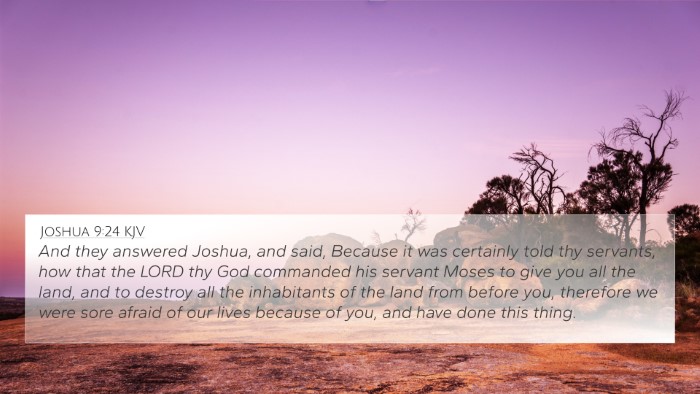
Joshua 9:24 (KJV) »
And they answered Joshua, and said, Because it was certainly told thy servants, how that the LORD thy God commanded his servant Moses to give you all the land, and to destroy all the inhabitants of the land from before you, therefore we were sore afraid of our lives because of you, and have done this thing.
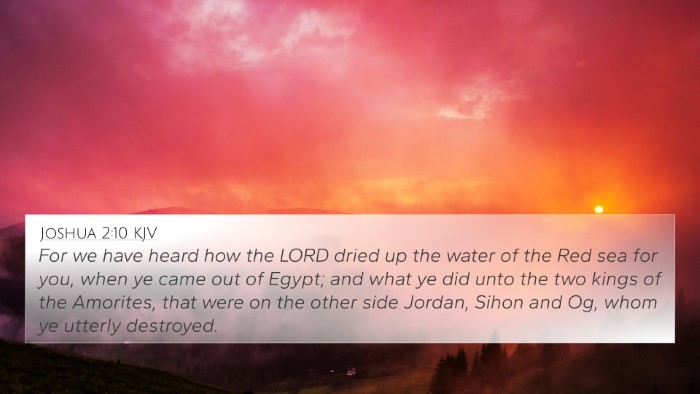
Joshua 2:10 (KJV) »
For we have heard how the LORD dried up the water of the Red sea for you, when ye came out of Egypt; and what ye did unto the two kings of the Amorites, that were on the other side Jordan, Sihon and Og, whom ye utterly destroyed.
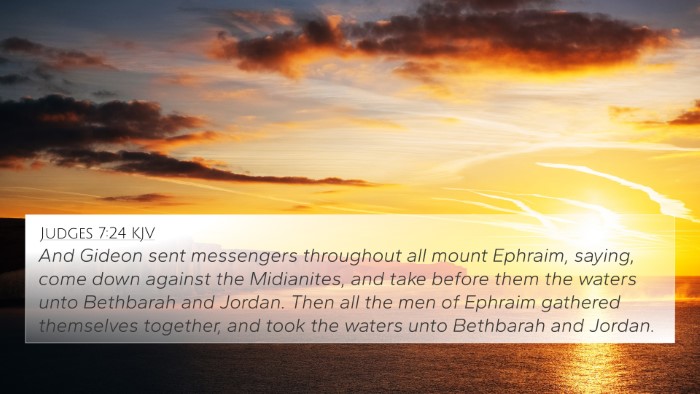
Judges 7:24 (KJV) »
And Gideon sent messengers throughout all mount Ephraim, saying, come down against the Midianites, and take before them the waters unto Bethbarah and Jordan. Then all the men of Ephraim gathered themselves together, and took the waters unto Bethbarah and Jordan.
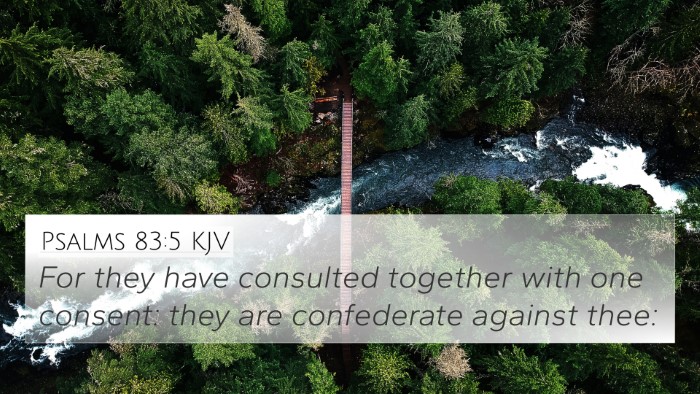
Psalms 83:5 (KJV) »
For they have consulted together with one consent: they are confederate against thee:
Habakkuk 3:7 Verse Analysis and Similar Verses
Understanding Habakkuk 3:7
Habakkuk 3:7 states: "I saw the tents of Cushan in affliction: and the curtains of the land of Midian did tremble." This verse is rich in imagery and conveys significant prophetic insights regarding God's sovereignty.
Verse Analysis
The context of Habakkuk's vision emphasizes God's might and the divine judgment that comes upon the nations. The reference to "tents of Cushan" and "curtains of Midian" suggests a historical moment where nations that opposed Israel face God's judgment.
Commentary Insights
Matthew Henry's Commentary
Matthew Henry emphasizes that the mention of Cushan and Midian invokes a sense of historical oppression and the turmoil faced by these nations when divine justice is realized. He highlights that the trembling of these curtains represents their fear and the crushing weight of God's impending judgment.
Albert Barnes' Notes
Albert Barnes interprets this verse as a prophetic utterance that portrays the panic and terror that overtakes the enemies of God. He notes that Cushan and Midian are symbolic of any force that stands against God’s people, hinting at their eventual defeat.
Adam Clarke's Commentary
Adam Clarke draws attention to the geographical and historical significance of Cushan and Midian — both known for their strength and might. He notes that their trembling indicates God's authority over even the most powerful. Clarke suggests that the verse encourages believers to trust that God will intervene on behalf of His people against their foes.
Bible Verse Cross-References
Understanding Habakkuk 3:7 is enhanced by considering related scriptures. Here are some connections between Bible verses that illuminate its meaning:
- Exodus 15:14-16: These verses reflect the fear that fell upon the nation's adversaries at the power of God during the Exodus.
- Psalm 68:30: This verse speaks of the terror of the people in the face of God's might, echoing the tremors faced by Cushan and Midian.
- Isaiah 9:4: This passage discusses the breaking of burdens and yokes, indicating God’s triumph over oppressive nations.
- Isaiah 10:25-27: God's judgment on the Assyrian oppressors showcases His authority over powerful enemies.
- Isaiah 51:9-10: A plea for God to awaken and once again demonstrate His power against the fearful nations.
- Micah 7:15: A promise of God’s miraculous actions in the face of enemies that resonate with Habakkuk’s prophecy.
- Zephaniah 2:10: The fate of the nations opposing Israel is linked with God's judgment and fear.
Connections Between Bible Verses
Thematic Bible verse connections can be extracted to provide deeper understanding when interpreting Habakkuk 3:7:
- The verses portray God’s sovereignty over nations throughout the scriptures, revealing a unified message of His ultimate authority.
- Cross-referencing Biblical texts enhances understanding of God’s pattern of judgment against those who oppose Him.
- Identifying connections between Old and New Testament reveals continuity in God’s character and His dealings with humanity.
Tools for Bible Cross-Referencing
For deeper study, consider utilizing:
- Bible Concordance: Helps in finding specific keywords and themes across the scripture.
- Bible Cross-Reference Guide: A resource that outlines parallels and connections between different passages.
- Cross-Reference Bible Study: Techniques used to reveal intertextual relationships and deepen scriptural understanding.
Conclusion
Habakkuk 3:7 serves as a powerful reminder of God's authority and the certainty of His judgment against opposing forces. Through comparative Bible verse analysis and thematic connections, believers are encouraged to trust in God's ultimate plan, knowing that He reigns supreme even when circumstances seem daunting.
As we explore these connections, we can find assurance in God's sovereignty and a call to remain steadfast, knowing that every nation must ultimately bow to His will.
